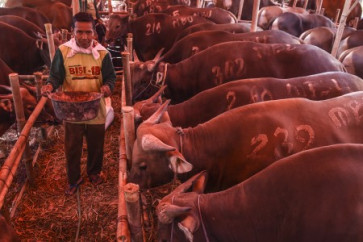Popular Reads
Top Results
Can't find what you're looking for?
View all search resultsPopular Reads
Top Results
Can't find what you're looking for?
View all search resultsToxic air and our food systems
The environmental consequence of burning waste is not only air pollution, but also the loss of biodiversity.
Change text size
Gift Premium Articles
to Anyone
A
thick pall of air pollution is shrouding South Asian cities, raising concerns over the toxicity in the air that has reached dangerous levels. Local authorities have closed schools and urged people to work from home. Vehicle traffic, construction activities and thermal plant emissions are also limited.
Jakarta faces the same problem. The city’s air quality is considered poor as shown by its average 2.5 particulate matter concentration that reaches 26.9 ug/m3, five times the limit set by the World Health Organization (The Jakarta Post, Oct. 8). Jakarta’s poor air quality has prompted a group of residents to sue the government in court – and win.
Understanding the different sources of air pollution will help us define actions toward improving the air quality. The five major sources of air pollution are agriculture, household, industry, transportation and waste. The pollution comes from human activities, although natural processes also contribute, such as dust storms and volcanic eruptions.
We can prevent the catastrophe in South Asia from happening here by reducing air pollution from the food system. Agriculture is a key sector in Indonesia’s economy and we should improve the food production system to become less harmful to the environment.
Several steps need to be taken, but require a strong commitment from agriculture stakeholders.
First, biomass and agriculture-waste burning must stop. We have to admit that burning is the easiest way to get rid of waste. Farmers usually burn their rice straws after harvesting. Open burning in landfills also releases harmful dioxins and black carbon.
In certain circumstances, burning is a common practice to establish natural land for other purposes. Burning involves little or no cost, but it leads to uncontrolled and destructive fires. The environmental consequences of this practice are not only a huge amount of air pollution but also the loss of biodiversity.



















